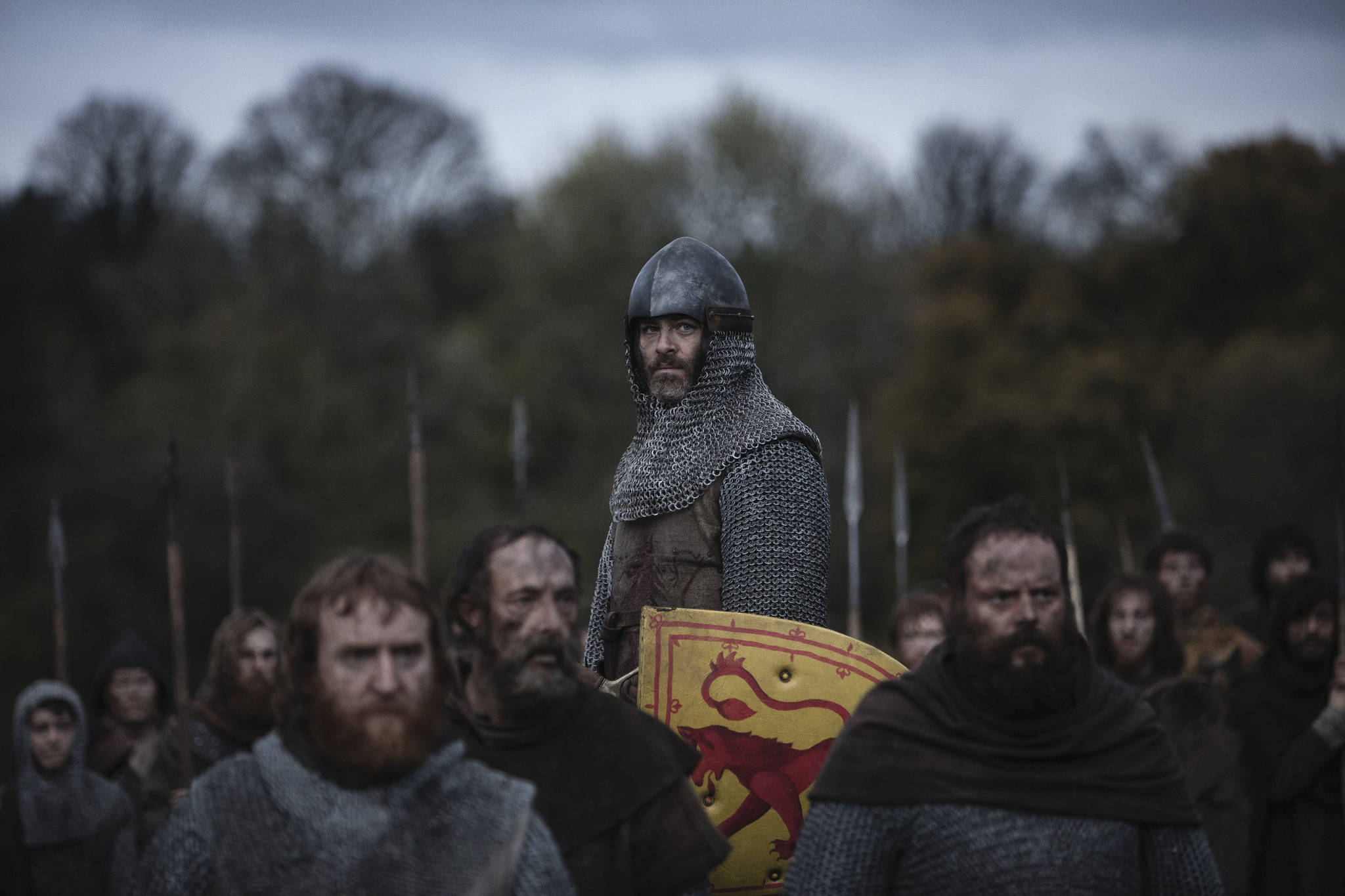The opening sequence of Outlaw King screams out one thing loud and clear: Forget about Netflix! Yes, we’ve just seen the corporate logo onscreen, but director David Mackenzie immediately launches into a bravura sequence that bombards us with big-screen movie-ness: In one complicated, unbroken shot—maybe seven or eight minutes long?—we watch political allegiances forged, hand-to-hand combat between crown princes unleashed, and the apparatus of war (a gigantic catapult that tosses flaming bombs at a faraway castle) fully engaged. This movie was produced for Netflix, but Mackenzie trumpets the largeness of its scope in no uncertain terms.
One of the princes in that opening sequence is Scottish national hero Robert the Bruce, played by Chris Pine in a filthy mullet. It’s the dawn of the 14th century, and R the B has just pledged his grudging loyalty to England’s King Edward I (wicked Stephen Dillane), even agreeing to marry a member of the enemy party, Elizabeth de Burgh (Florence Pugh). Eventually Robert stakes his claim to the Scottish crown—a claim hastened by stabbing a rival—and goes to war with England. The movie hits a series of combat beats thereafter, mostly grubby battles and mud-spattered ambushes, reminding us what a dirty business this game of thrones really is.
The effect is monotonous, but a few things enliven Outlaw King during its grueling 121-minute running time. One is the agreeably liberated marriage between Robert and Elizabeth, presented as an intelligent matched pair. If you saw Lady Macbeth, you know that Pugh is more than capable of standing her ground against Chris Pine’s Captain Kirk swagger (the movie’s evenhandedness on this point extends to equal time for male and female nudity). Other actors provide juice along the way, even if it’s difficult to tell some of them apart under the mud and furs: Billy Howle (recently the hesitant husband in On Chesil Beach) creates a sniveling Prince of Wales, and Aaron Taylor-Johnson (Quicksilver in Age of Ultron) entertainingly overplays as James Douglas, presented here as Doc Holliday to Robert the Bruce’s Wyatt Earp. Pine, who enjoyed a career high under Mackenzie’s direction in Hell or High Water, does a credible job with the accent and the manly heroics.
If it’s tempting to draw a line from Braveheart to this movie, that’s understandable; the action basically picks up from the end of Mel Gibson’s Oscar-winner, with the dismembered body of William Wallace making a cameo appearance. But the tone is different. Where Braveheart drank deeply from the goblet of triumph, Outlaw King operates in a glum, skeptical key. And its echoes of 21st-centry politics, as Scotland weighs another round of arguments about possibly breaking from Brexit-minded England, seem entirely intentional.
Netflix is releasing Outlaw King to theaters in conjunction with the movie’s streaming bow, a new policy for the company’s higher-profile titles (like the upcoming Coen brothers’ Ballad of Buster Scruggs and Alfonso Cuaron’s Oscar favorite Roma). And so the blurring of the lines between big screen and small screen continues, with one added proviso. For most of the year Netflix may be content to dump its content directly online—but when it comes to the buzziness of awards-season prestige and a place at the Oscar table, the strategy is clear: Go big or go home.
Outlaw King
Available Friday, November 9 | Streaming on Netflix | Screening at The Crest | Rated R






